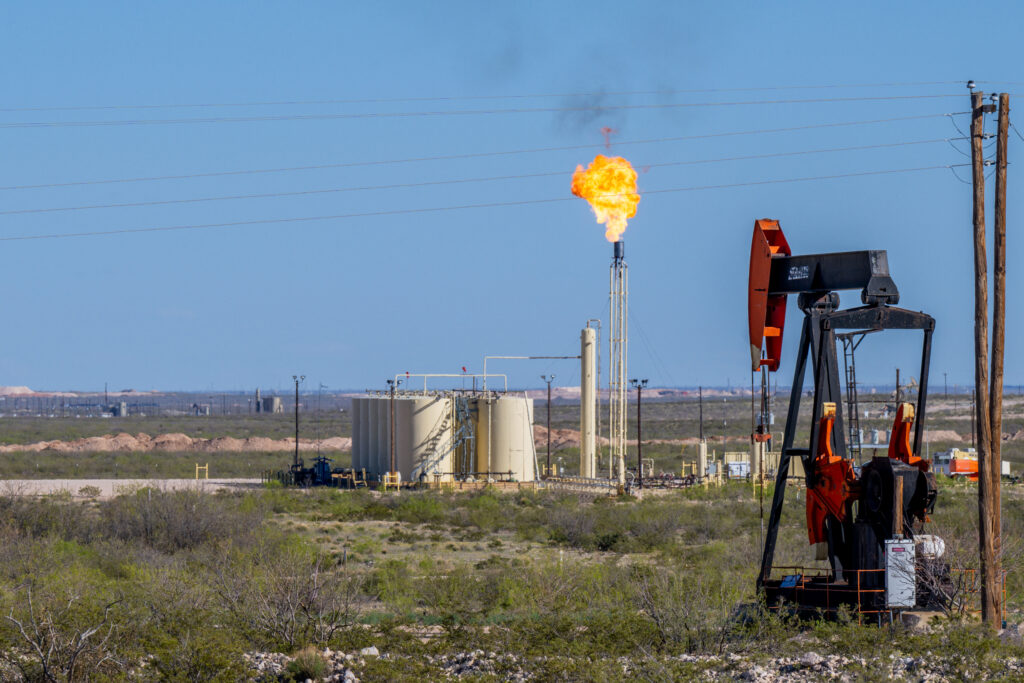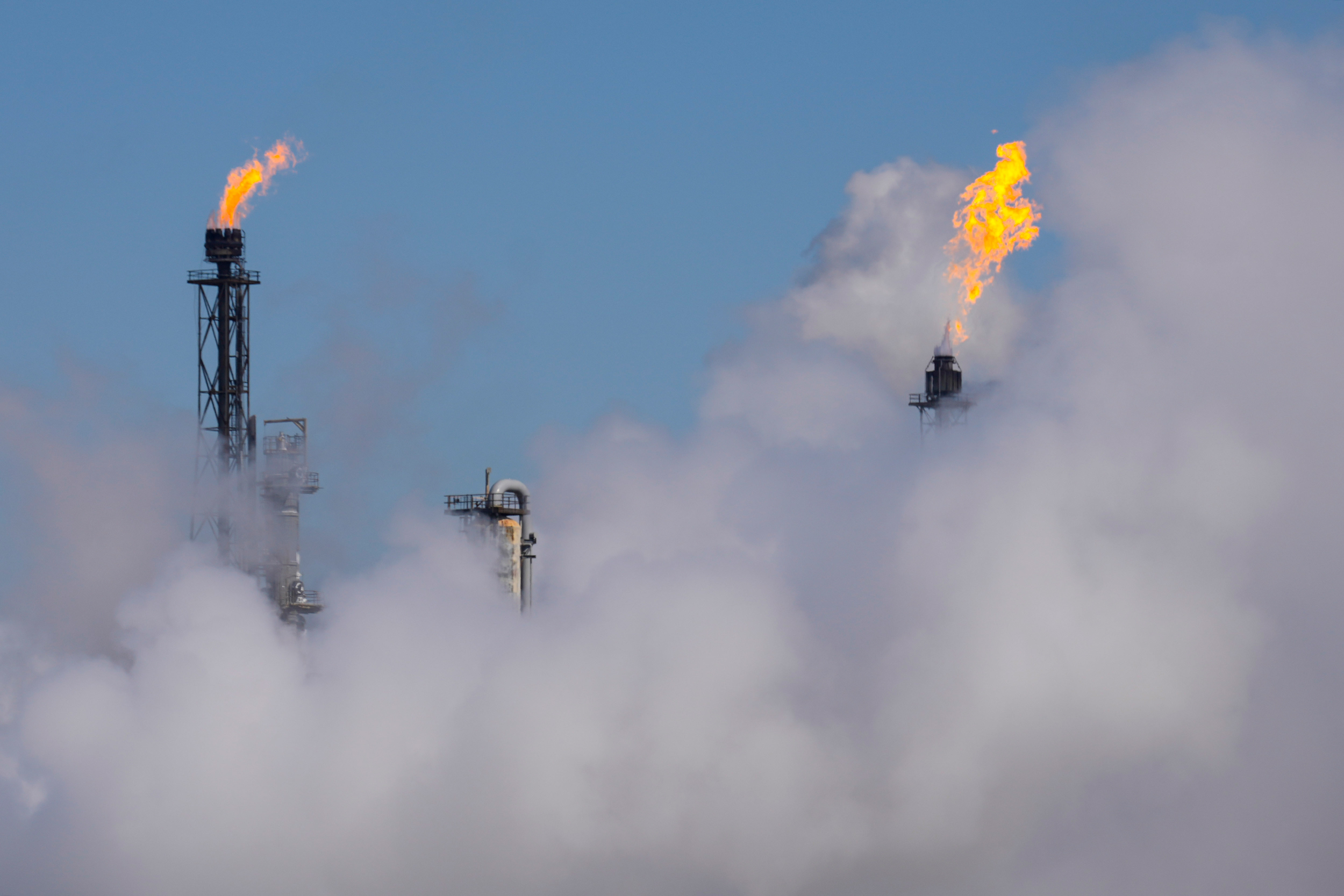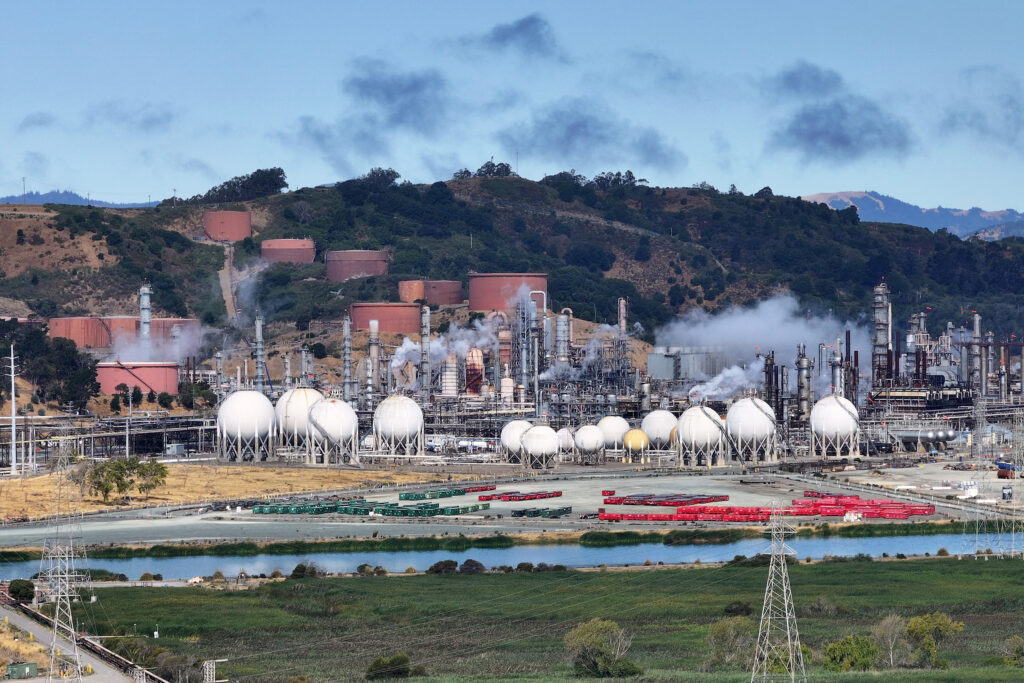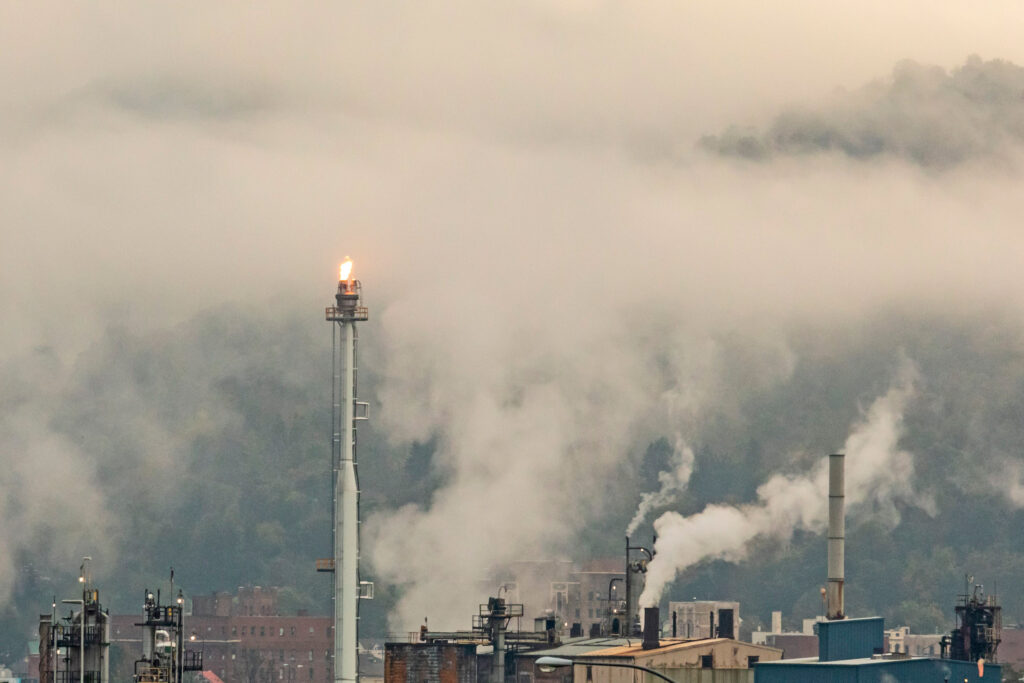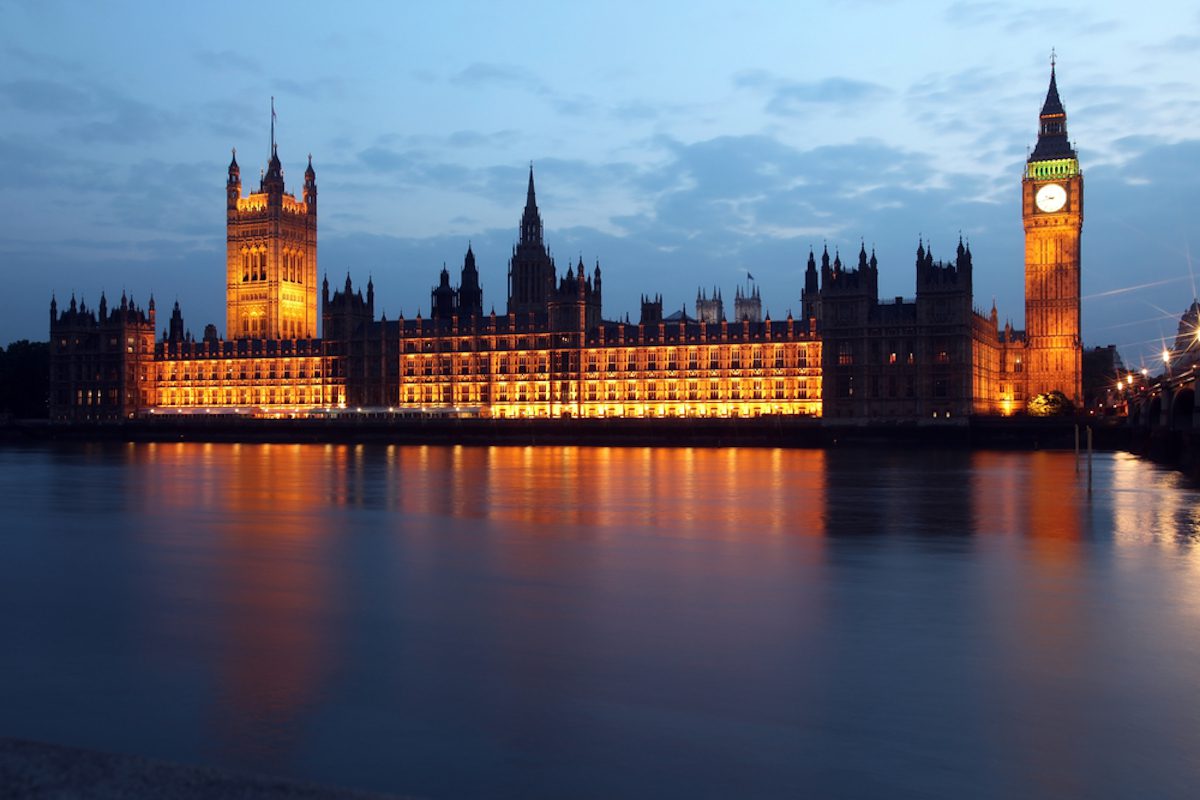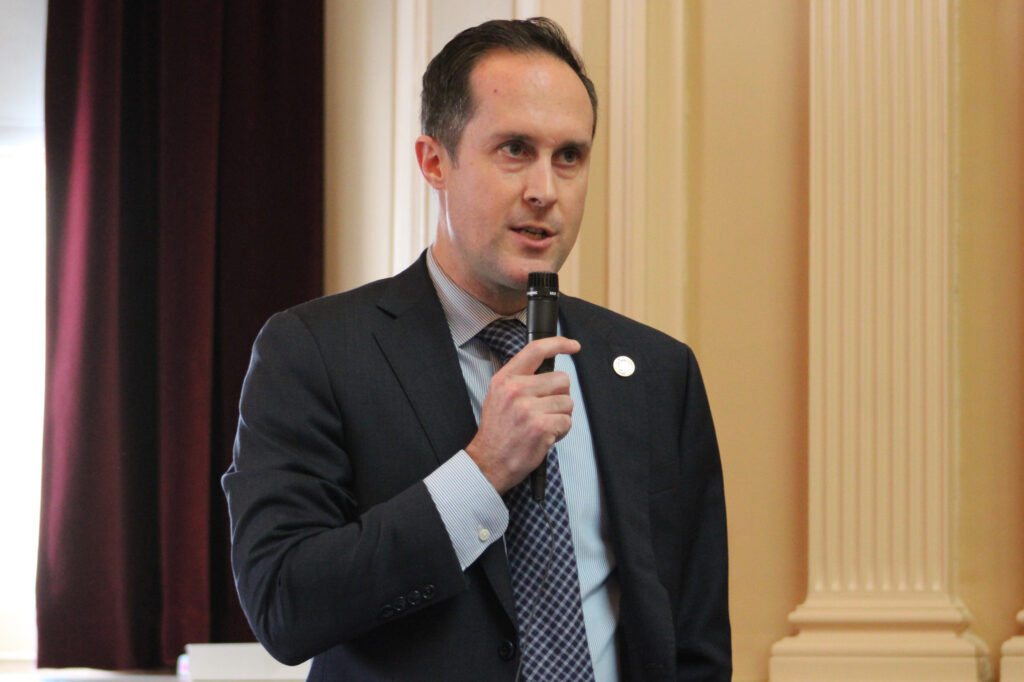A half-century-old Pennsylvania power plant fueled by oil and natural gas will keep running beyond its scheduled shutdown date following an order from the Trump administration just one day before it was due to retire.
The Eddystone Generating Station near Philadelphia was to close permanently last Saturday because its owner determined it no longer made economic sense to run.
But an order from the U.S. Department of Energy on Friday directed the plant’s owner, Constellation Energy, and grid manager PJM Interconnection to take “all measures necessary” to ensure that the two remaining generation units at the plant are available to operate. The order is effective until Aug. 28 and can be extended.
“Operational availability and economic dispatch of the aforementioned Eddystone Units 3 and 4 is necessary to best meet the emergency and serve the public interest,” said the order from Energy Secretary Chris Wright. He said the 90-day duration of the order was also intended to “minimize adverse environmental impacts.”
The order said the continued operation is justified by a national “energy emergency” declared by President Donald Trump on Jan. 20, and by PJM’s responsibility to ensure electric reliability. On April 8, Trump issued another executive order saying that all available electricity supplies “must” be used to meet an unprecedented increase in national demand for power, especially to run artificial intelligence data centers. At the same time, the Trump administration has cracked down on efforts to expand renewable energy, including an executive order to freeze development of new offshore wind projects.
The new order is the second of its kind from Trump’s DOE. In late May, Wright directed the 1,560-megawatt J.H. Campbell Plant in western Michigan to stay open past its scheduled closure date, also last Saturday. The agency said action was needed to minimize the risk of blackouts and improve grid security.
Environmentalists blasted the new order as another sign of the Trump administration’s support for fossil fuels and said it would do little or nothing to improve grid reliability. They noted that PJM determined in February 2024 that closing the plant would not hurt reliability, a finding that triggered the start of the closure process.
“There is no reason to believe that this plant that had been operating infrequently during times of peak demand will be needed over the next 90 days for reliability purposes, but it will be increasing costs,” said Robert Routh, Pennsylvania policy director for climate and energy at the nonprofit Natural Resources Defense Council.
Routh predicted that ratepayers will end up bearing the cost of a last-minute scramble to keep the plant running, suddenly reversing a process that may have involved draining fuel tanks or avoiding unnecessary maintenance. “None of that is going to come cheap,” he said.
It’s unclear whether the administration had the authority to use section 202(c) of the Federal Power Act to issue its order, according to Caroline Reiser, senior attorney with NRDC. The statute was designed to give the DOE the power to seek energy corrections to one-off events such as hurricanes, but Eddystone’s market does not meet that standard, she said.
“This is not the way that 202(c)s are meant to be used, and historically have been used,” Reiser said. “It’s an emergency authority for DOE. Congress granted the DOE this authority, originally in time of war, and it has been extended into other emergency situations such as hurricanes.”
Even though PJM told Congress in March this year that the grid faces a “growing resource adequacy concern,” that doesn’t constitute the emergency for which the law was designed, Reiser said.
DOE did not immediately respond to a request for comment. PJM also did not respond to a request for comment but issued a statement on Saturday supporting the DOE’s move to “defer the retirements of certain generators” in PJM’s territory, which spans 13 states plus the District of Columbia.
Constellation confirmed it will work with PJM and the DOE to keep Eddystone running. The company said it had decided to close Eddystone after PJM determined that closure would not hurt grid reliability.
“Eddystone Units 3 and 4 remain in ‘ready’ status and we are working quickly to retain necessary staff and perform necessary maintenance to allow for safe and reliable operations this summer and beyond,” said Constellation spokesman Jeffrey Myers. He said the units run just 1.5 percent of the time, only when called on by PJM. The plant had been planned for closure for “economic reasons,” he said.
The company has owned the units, which can generate a combined 760 megawatts, since they were installed in the late 1960s.
On Tuesday, Constellation announced a deal with Meta, the parent company of Facebook, to supply 1.1 gigawatts of nuclear power over 20 years to help meet the tech giant’s surging need for power for artificial intelligence. The power will be generated by Constellation’s Clinton Clean Energy Center in Illinois.
Constellation is separately working to restart one unit at Three Mile Island, the nuclear power plant near Harrisburg, Pennsylvania, that partially melted down in America’s worst nuclear power accident in 1979. The restart, exclusively to provide energy for a Microsoft data center, had been scheduled for 2028 but since the latest DOE order has been accelerated to 2027, Myers said.
Tracy Carluccio, deputy director of the nonprofit Delaware Riverkeeper Network, said that keeping the plant running in the summer would raise emissions of harmful pollutants like particulates and volatile organic compounds in the Philadelphia area, and add to greenhouse gases at a time when the planned closure would have cut them.
“Saying that you are going to keep a dirty power plant open during the summer means that you are directly contributing to more failed air-quality days. It’s going to exacerbate our failure to meet clean-air standards, and there are consequences of that for people’s health,” she said.
Carluccio added: “It is an environmental injustice to allow this pollution to continue.”
About This Story
Perhaps you noticed: This story, like all the news we publish, is free to read. That’s because Inside Climate News is a 501c3 nonprofit organization. We do not charge a subscription fee, lock our news behind a paywall, or clutter our website with ads. We make our news on climate and the environment freely available to you and anyone who wants it.
That’s not all. We also share our news for free with scores of other media organizations around the country. Many of them can’t afford to do environmental journalism of their own. We’ve built bureaus from coast to coast to report local stories, collaborate with local newsrooms and co-publish articles so that this vital work is shared as widely as possible.
Two of us launched ICN in 2007. Six years later we earned a Pulitzer Prize for National Reporting, and now we run the oldest and largest dedicated climate newsroom in the nation. We tell the story in all its complexity. We hold polluters accountable. We expose environmental injustice. We debunk misinformation. We scrutinize solutions and inspire action.
Donations from readers like you fund every aspect of what we do. If you don’t already, will you support our ongoing work, our reporting on the biggest crisis facing our planet, and help us reach even more readers in more places?
Please take a moment to make a tax-deductible donation. Every one of them makes a difference.
Thank you,




